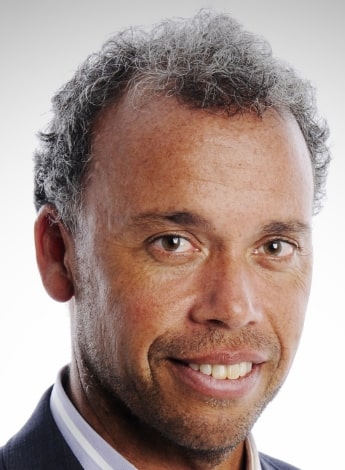
Treating low back pain at the highest level

AUSTRALIAN COLLEGE OF PHYSIOTHERAPISTS An early interest in low back pain led to a career-long professional focus for Specialist Pain Physiotherapist Dr Jon Ford.
For 35 years, clinician, researcher and business owner Dr Jon Ford FACP has dedicated his career to improving clinical outcomes for people living with chronic pain, with a focus on low back pain.
It’s a career of many highlights, from beginning as a new graduate physiotherapist to establishing a network of Melbourne-based multidisciplinary pain management clinics that also provide virtual services across Australia.
Jon is an Associate Professor of Physiotherapy, a Specialist Pain Physiotherapist (as awarded by the Australian College of Physiotherapists in 2021), an APA Musculoskeletal Physiotherapist, an APA Pain Physiotherapist and managing director of Advance Healthcare.
He was awarded Fellowship by Original Contribution by the Australian College of Physiotherapists in 2020 and clinical specialisation a year
later.
His original contribution by research, on individualised physiotherapy for low back pain, was supervised by Emeritus Professor Gwendolen Jull from the University of Queensland.
‘Being accepted into the Australian College of Physiotherapists—firstly by original contribution and, subsequently, as one of the inaugural cohort of pain specialists—is a highlight of my career.’
Jon was introduced to physiotherapy after acquiring an injury while kayaking as a teenager.
‘I was a high-level flatwater kayak paddler and injured my triceps before the national titles in 1979.
'My close friend’s mum was a physio by the name of [Honoured Member] Joan McMeeken APAM AM [future Foundation Professor and head of the School of Physiotherapy at the University of Melbourne from 1991 to 2007].
'Her advice and treatment enabled me to race at nationals and had a lasting impact on my career choices. My initial motivation was, like so many young physios, to enter sports physio but this changed over time.’
Joan continued to be a strong career influence, joining Curtin University’s Professor of Musculoskeletal Physiotherapy Peter O’Sullivan FACP in supervising Jon’s doctoral research (titled ‘The classification of low back pain’).
He completed his PhD in 2003.
Jon’s interest in low back pain began when he was a fourth-year La Trobe University student in 1987, under the guidance of then-postgraduate Dr Rob Laird FACP.
‘I completed a systematic review titled “The effectiveness of sub-group specific manual therapy for low back pain”.
'A lifelong passion for evidence-based practice was kindled thanks to Rob’s knowledge and passion.
'Seven years later, I commenced tutoring work at the University of Melbourne’s Physiotherapy Department, enabling me to access and read every paper I could find on low back pain and to develop a physiotherapy functional restoration program based on the biopsychosocial approach.’
In 1995, while lecturing at the university, Jon helped establish Spinal Management Clinics, providing evidence-based rehabilitation to people with low back pain with a strong focus on psychosocial factors and a cognitive behavioural approach.
He purchased the business in 2014, rebranding it as Advance Healthcare.

As managing director, Jon has grown the business from one to six practices, with a team of more than 60 experienced pain physicians, psychologists and physiotherapists who provide evidence-based and individualised multidisciplinary pain management.
Many of the Advance Healthcare clinicians are involved in the Low Back Research Team at La Trobe University, where Jon is an Adjunct Associate Professor of Physiotherapy.
In 2016, Jon and colleagues published a high-quality randomised controlled trial on an approach called ‘specific treatment of problems of the spine’, adding to more than 60 papers on the relative importance of different biopsychosocial factors in clinical decision-making.
He is conducting further implementation studies of this approach in overseas populations and is also leading a number of large trials in Australia on individualised motivational interviewing and motor control for low back pain.
Motivating and training a team of practitioners to help people to fulfil their potential inspired Jon to undertake specialisation and fellowship.
‘Specialisation, to me, is the pinnacle of my commitment to lifelong learning as an individual practitioner and also as an educator of other physiotherapists.
'It offered an opportunity to challenge myself to scrutiny of my clinical competency at the highest level.’
Jon says there are many benefits to physiotherapy specialisation, including:
- improved clinical outcomes for his patients
- recognition of clinical competency as an expert in chronic pain by patients, referrers and peers
- the development of skills in active learning, including the opportunity to facilitate the next cohort of pain registrars
- the ability to increase fees for services in private practice
- networking and recognition within the College, leading to opportunities to participate in a variety of different projects (eg, the Victorian Transport Accident Commission Enhanced Recovery Program)
- collegiability among the College specialists and the pain cohort.
The primary challenge of specialisation is receiving and positively responding to frequent, direct and explicit feedback, particularly as an already well-established senior practitioner.
Kayaking and water sports continue to influence Jon’s career. A balanced life, he says, is important when striving to achieve career goals.
A desire to ‘help people to become their best’ and to give back to the community extends to working with youth in surf lifesaving as head coach of Point Leo Surf Life Saving Club and president of MP Paddlers (a kayak club competing in downwind and flatwater racing).
When not working or volunteering, Jon is off-roading in the outback, surfing, kayaking and playing guitar in his jazz-funk fusion band.
In a professional capacity, he joined the organising committee of the 11th Interdisciplinary World Congress on Low Back and Pelvic Girdle Pain, to be held in Melbourne on 1–4 November.
Jon’s advice to peers who are considering following the APA Physiotherapy Career Pathway to become Titled Members (members of the Australian College of Physiotherapists, MACP) or Specialist Physiotherapists (fellows of the Australian College of Physiotherapists, FACP) is to seek out opportunity and active support networks.
‘Find a work environment that supports the development of specialist skills and a lifelong learning culture.
'Develop a network of career and clinical mentors.
'Allow sufficient time and structure within your clinical routine for ongoing education and embedding new skills into clinical practice.
'Find opportunities to engage in clinical research collaboration, co-author systematic reviews as an initial foray into clinical research and consider the new portfolio pathway as a method of gaining titling en route to specialisation.’
For more information click here or email acp@australian.physio
© Copyright 2025 by Australian Physiotherapy Association. All rights reserved.





